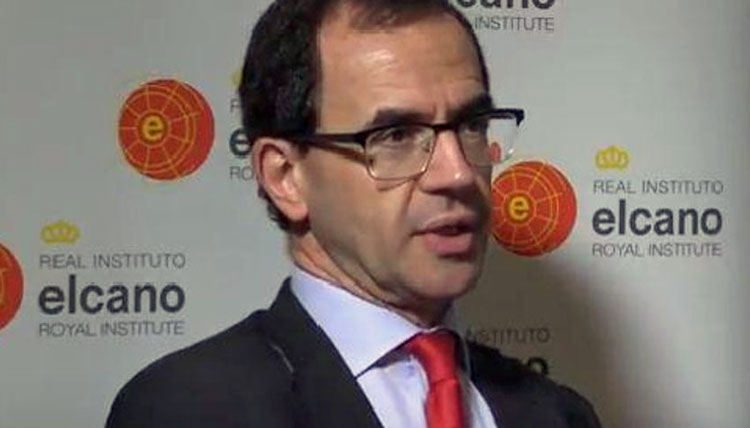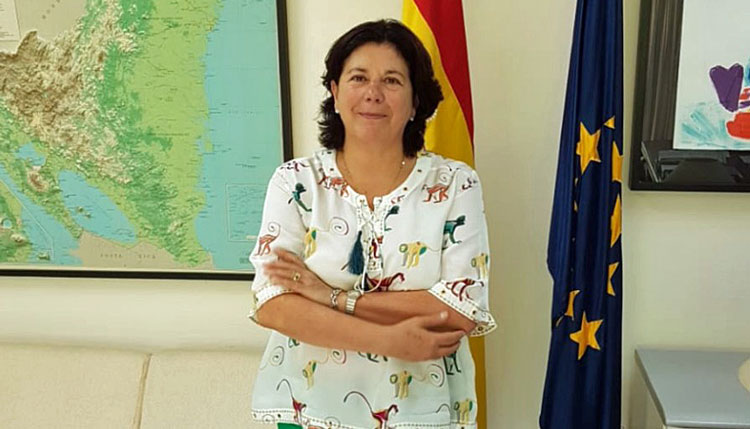The Diplomat
The head of the Court of Instruction number 7 of Zaragoza, Rafael Lasala, has summoned Camilo Villarino, who was head of the Cabinet of the then Minister of Foreign Affairs, Arancha González Laya, to testify as an investigated person for the entry into Spain of the leader of the Polisario Front, Brahim Ghali.
The judge has taken the decision following the request made by the lawyer for the private prosecution, Antonio Urdiales, who wants the circumstances of Ghali’s entry and exit from Spain to be clarified and whether there was a possible cover-up or prevarication.
In a document sent to Judge Lasala in mid-July, Villarino stated that it was he who telephoned Lieutenant General Francisco Javier Fernández in his capacity as second in command of the Air Force General Staff, and that he asked him if the Foreign Ministry required Ghali to complete the customs or immigration formalities established for him. “The undersigned -González Laya’s chief of staff pointed out in his letter- replied that it was not necessary, this answer being perfectly coherent both with established practice and with the applicable legislation in force”.
Urdiales then requested, in a document presented to the judge on 29 July, that Villarino and Air Force Lieutenant General Francisco Javier Fernández be summoned to testify as investigated persons.
Brahim Ghali arrived on 18 April in an Algerian plane at the Zaragoza Air Base, without passing border controls or documentation, and from there he left in an ambulance for the San Pedro Hospital in Logroño, where he was admitted under the name of Mohamed Benbatouche. On 2 June he left the country from Pamplona.
Urdiales told Europa Press that the Polisario leader, according to a report by the chief colonel of the Guardia Civil of Navarre, on his departure from Spain passed through the authorities’ lounge at Noain Airport, receiving special treatment that did not correspond to him and, once again, without controls, as on his arrival.
Now, Judge Lasala, in an order dated 9 August, summonsed Villarino as a person under investigation, but not General Fernández, on the grounds that “there is no evidence that he knew that the person arriving in Spain had or did not have a diplomatic passport or was exempt for any reason from passport and customs control”.
Nevertheless, the judge summons General Fernández as a witness, who, like Villarino, is due to appear before him on 1 September.
The head of the office of the president of La Rioja, Eliseo Sastre, will also appear as a witness, on a date yet to be determined. The prosecution has also requested that the then technical secretary general at the Ministry of Foreign Affairs, José María Muriel Palomino, also appear as a witness.
The PP Secretary for International Affairs and spokesperson for Foreign Affairs in Congress, Valentina Martínez, asked the current Minister for Foreign Affairs, José Manuel Albares, for an explanation of the judge’s decision, stating that “it is clear that they need to explain who was the person who made the decision to bring Ghali to Spain”.
The ‘popular’ leader told Europa Press that “it is surprising to say the least” that Villarino has been the “ultimate decision-maker” of something so “sensitive and delicate that has taken Spain’s relations with Morocco by surprise. “I understand that he has carried out orders given by someone,” he added.
For its part, the Association of Spanish Diplomats (ADE) expressed its confidence in justice and insisted that Villarino is an “exemplary civil servant”.
Camilo Villarino, who left his post a month ago when Arancha González Laya took over as minister, is awaiting the Russian government’s approval to be appointed Spanish ambassador to Moscow.







